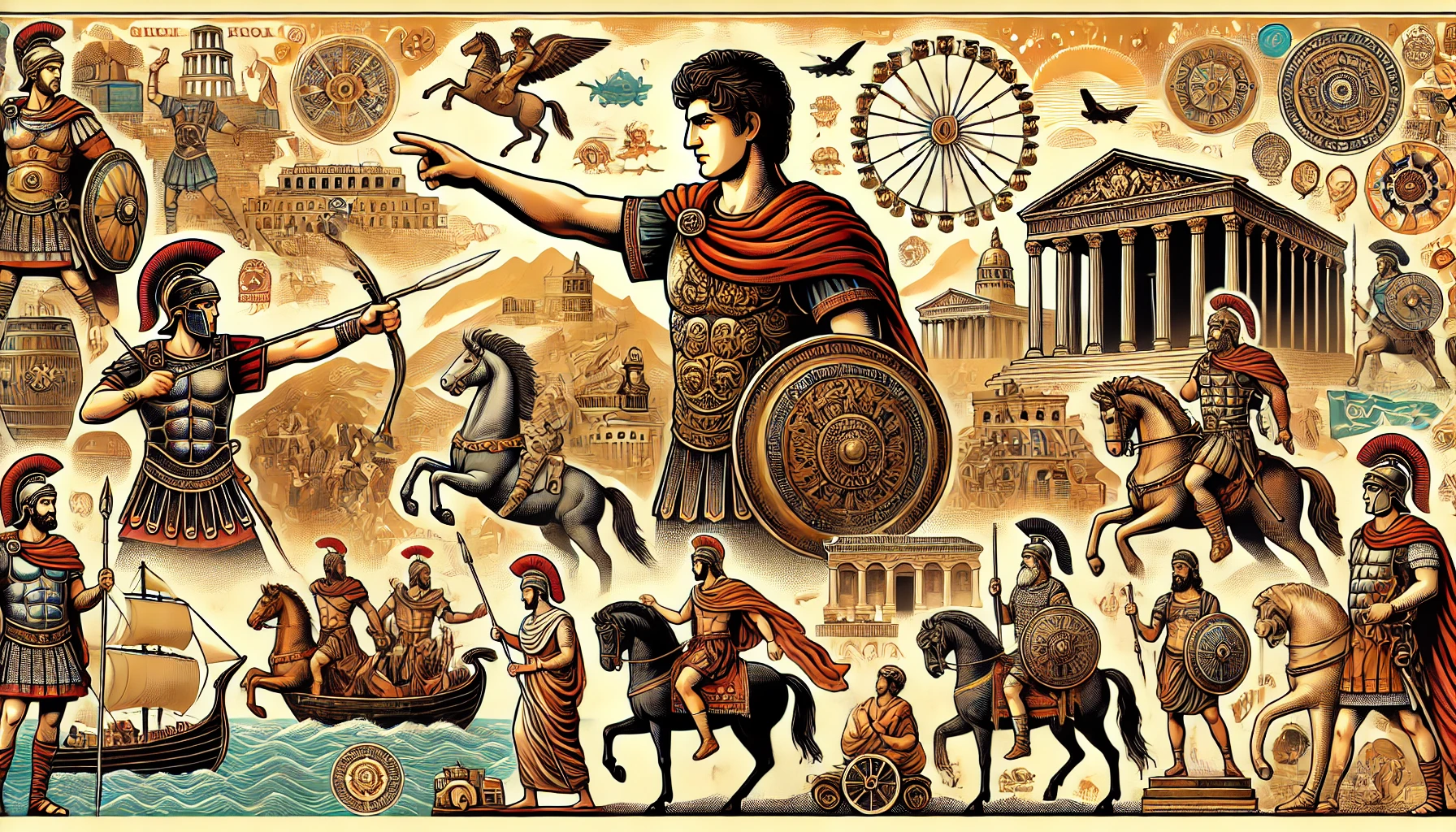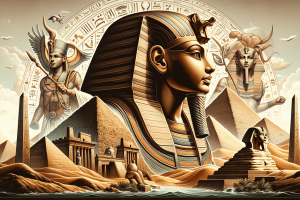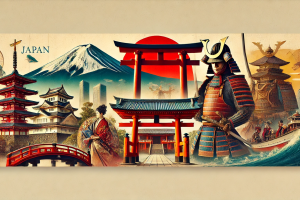The Life and Times of Alexander the Great: Biography, Timeline, and Fascinating Facts
Alexander the Great remains one of history’s most captivating figures. Known for his unparalleled achievements, expansive empire, and enduring legacy, Alexander’s life story continues to inspire and intrigue scholars, historians, and enthusiasts alike. This blog will delve into his biography, timeline, achievements, battles, and more, providing a comprehensive look at one of the greatest military minds the world has ever seen.
Alexander the Great Biography
Born in 356 BC in Pella, the ancient capital of Macedonia, Alexander the Great was the son of King Philip II and Queen Olympias. From a young age, he was exposed to the intricacies of leadership and military strategy, thanks to his father’s tutelage and the mentorship of the renowned philosopher Aristotle. This early education laid the foundation for Alexander’s future conquests and achievements.
Early Life and Education
- Birth and Family: Alexander was born into the royal family of Macedonia, with his father, King Philip II, being a formidable military leader.
- Aristotle’s Mentorship: At the age of 13, Alexander was tutored by Aristotle, who instilled in him a love for philosophy, science, and literature. This education played a crucial role in shaping Alexander’s intellect and strategic thinking.
Rise to Power
- Ascension to the Throne: After the assassination of King Philip II in 336 BC, Alexander ascended to the throne at the age of 20. His first task as king was to secure his power by eliminating potential rivals and quelling rebellions within the kingdom.
- Consolidation of Power: Alexander quickly established his authority, demonstrating his military prowess by leading campaigns to subdue Thrace, Thebes, and other regions that posed a threat to his rule.
Alexander the Great Timeline
Understanding the timeline of Alexander the Great’s life and conquests provides a clearer picture of his rapid rise to power and the vast empire he built in a relatively short period.
Major Milestones
- 356 BC: Birth of Alexander the Great in Pella, Macedonia.
- 336 BC: Ascends to the Macedonian throne after the assassination of his father, King Philip II.
- 334 BC: Launches his campaign against the Persian Empire, beginning with the Battle of Granicus.
- 333 BC: Wins the Battle of Issus, defeating the Persian King Darius III.
- 331 BC: Conquers Egypt and establishes the city of Alexandria.
- 331 BC: Achieves a decisive victory at the Battle of Gaugamela, leading to the fall of the Persian Empire.
- 326 BC: Invades India and wins the Battle of Hydaspes.
- 323 BC: Dies in Babylon at the age of 32.
Alexander the Great Achievements
Alexander the Great’s achievements are unparalleled in the annals of history. His ability to lead, strategize, and inspire his troops allowed him to conquer much of the known world by the time of his death.
Military Conquests
- Persian Campaign: Alexander’s campaign against the Persian Empire is one of his most significant achievements. His victories at the Battles of Granicus, Issus, and Gaugamela effectively dismantled Persian power.
- Egypt and the Founding of Alexandria: In 331 BC, Alexander conquered Egypt and founded the city of Alexandria, which would become a major center of Hellenistic culture and learning.
Cultural Impact
- Hellenization: Alexander’s conquests spread Greek culture across the known world, a process known as Hellenization. This cultural diffusion had a lasting impact on art, architecture, language, and science in the regions he conquered.
- Legacy of Leadership: Alexander’s leadership style, characterized by his personal bravery and strategic acumen, has been studied and admired by military leaders throughout history.
Alexander the Great Battles
Alexander’s military genius was displayed in numerous battles, where his strategic innovations and fearless leadership secured his place as one of history’s greatest commanders.
Key Battles
- Battle of Granicus (334 BC): Alexander’s first major victory against the Persian satraps, which opened the path to Asia Minor.
- Battle of Issus (333 BC): A decisive victory against Darius III, where Alexander’s forces outmaneuvered the larger Persian army.
- Battle of Gaugamela (331 BC): Perhaps Alexander’s most significant victory, leading to the fall of the Persian Empire and the flight of Darius III.
- Battle of Hydaspes (326 BC): Fought against King Porus in India, this battle showcased Alexander’s tactical brilliance in overcoming difficult terrain and a formidable enemy.
Alexander the Great Empire
The empire built by Alexander the Great was one of the largest in ancient history, stretching from Greece to Egypt and into the heart of Asia.
Extent of the Empire
- Western Borders: Included Greece and Macedonia, the heartland of Alexander’s power.
- Eastern Expansion: Extended to the Indus River in India, marking the easternmost point of his conquests.
- Southern Reach: Included Egypt, where he was hailed as a liberator and pharaoh.
Administration and Governance
- Integration of Cultures: Alexander adopted elements of Persian dress and customs, encouraging his soldiers to marry local women to foster unity.
- Founding of Cities: Established numerous cities, many of which were named Alexandria, serving as administrative centers and symbols of Greek culture.
Alexander the Great Facts
There are numerous fascinating facts about Alexander the Great that highlight his character, ambitions, and the era he lived in.
Interesting Facts
- Never Defeated in Battle: Alexander the Great never lost a battle, a testament to his military genius and leadership.
- Student of Aristotle: His education under Aristotle significantly influenced his approach to leadership and governance.
- Pharaoh of Egypt: In Egypt, Alexander was declared a pharaoh and a god, illustrating the diverse cultural influences he embraced.
- Early Death: Alexander died at the young age of 32, with the cause of his death remaining a topic of historical debate and speculation.
Alexander the Great Quotes
Alexander the Great is attributed with several quotes that reflect his philosophy and mindset as a leader and conqueror.
Notable Quotes
- “I am indebted to my father for living, but to my teacher for living well.”
- “There is nothing impossible to him who will try.”
- “I would rather live a short life of glory than a long one of obscurity.”
Alexander the Great Death
The death of Alexander the Great remains one of history’s great mysteries, with various theories about the cause of his untimely demise.
Circumstances of His Death
- Location: Alexander died in the palace of Nebuchadnezzar II in Babylon.
- Age: He was 32 years old at the time of his death.
- Theories: Proposed causes of his death include typhoid fever, poisoning, and other natural causes.
Alexander the Great Legacy
The legacy of Alexander the Great is vast, influencing countless aspects of history, culture, and leadership.
Enduring Influence
- Hellenistic Culture: Alexander’s conquests led to the spread of Greek culture and ideas, profoundly impacting the regions he conquered.
- Military Strategy: His tactics and strategies are still studied in military academies around the world.
- Cultural Fusion: Alexander’s empire facilitated the blending of Greek and Eastern cultures, leading to advancements in art, science, and philosophy.
Alexander the Great History
The history of Alexander the Great is a captivating narrative of ambition, conquest, and cultural transformation.
Historical Impact
- Expansion of the Known World: Alexander’s conquests expanded the boundaries of the known world, fostering connections between diverse cultures.
- Foundation of Cities: The cities founded by Alexander became centers of learning and culture, perpetuating his legacy long after his death.
For more detailed information on Alexander the Great and his historical impact, visit Regent Studies.
Alexander the Great’s life and legacy continue to captivate and inspire. From his early education under Aristotle to his unparalleled military conquests and the vast empire he built, Alexander’s achievements have left an indelible mark on history. His biography, timeline, achievements, battles, and the lasting influence of his empire provide a fascinating glimpse into the life of one of history’s greatest figures. For those interested in learning more about Alexander the Great, his legacy, and the broader context of his time, further exploration is highly recommended.
To explore more about Alexander the Great and other historical figures, refer to this external source.
By understanding the life and legacy of Alexander the Great, we gain insights into the qualities of leadership, ambition, and cultural integration that have shaped the course of history.




